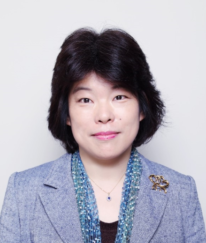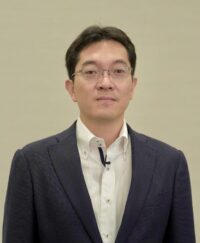 Webinar
WebinarTuesday 14 December 2021
12:00pm – 1:15pm
Domestic AI in the UK and in Japan
-
Organised by the Daiwa Anglo-Japanese Foundation
Workplace digitalisation and automation have attracted substantial academic and policy attention in recent years. In contrast, the digitalisation of households and the rising automation of housework and care work has received limited attention. The value of unpaid domestic labour is not included in GDP or other national income accounting indicators, making it largely invisible. Yet unpaid work is important, with housework and care work making an important contribution to total welfare and economic output. Domestic digitalisation and automation may have evaded scholarly attention, but these trends have not evaded consumers. “Service robots for domestic household tasks” – mainly robot vacuum cleaners and floor cleaners – are now the most widely produced and sold robots in the world. In 2019, 18.6 million were sold, a 40% year-on-year increase. This figure underestimates domestic automation as it excludes apps helping with various domestic tasks including shopping and teaching children. With the rise of digitalisation and predictive automation, our homes are currently undergoing a major transformation. In this webinar we explored the implications for households in Japan and the UK.
Upcoming research and publications by the speakers on these areas of research can be found here:
A short summary of the event can be found via this link, located on the Foundation’s Facebook page, and a video can be watched below:
About the contributors

Ekaterina Hertog
Ekaterina Hertog is a Research Fellow at the Department of Sociology, University of Oxford. Dr Hertog’s research interests lie at the intersection of family sociology and digital sociology. She leads the ESRC-funded Domestic AI project that aims to scope new technologies’ potential to free up time now locked into unpaid domestic labour and measure how willing people are to introduce these technologies into their private lives. Dr Hertog is also a research fellow at the GenTime research project, investigating gender differences in time use in East Asia. Dr Hertog’s time use research looks at factors that impact the gender balance in the domestic division of labour, associations between children’s time use patterns and their natal family characteristics, and gender differences in time use at old age. Her research has appeared in journals including Journal of Marriage and Family, Demographic Research, PLOS One, and Journal of Population Aging.

Nobuko Nagase
Nobuko Nagase is a Professor of Labor Economics and Social Policy at Ochanomizu University, Tokyo, Japan. Her interests include wage structure and work choice, labor market regulations and social security, tax and other institutional effects on work and gender, marital behavior and child-birth timing. Nagase has conducted empirical studies on child care supply, public pension, long-term care insurance, child care leave and other institutional features of the Japanese system. Results of her research have been published in various scholarly peer-reviewed journals in Japan, including Japanese Economic Journal, Journal of Population Problem, Econometric Review, and Quarterly Journal of Social Policy. She obtained her Ph.D. in 1995 and her B.A. in 1989 from the University of Tokyo, Economics Department.

Setsuya Fukuda
Setsuya Fukuda is a social demographer working at the National Institute of Population and Social Security Research where he conducts demographic research on the inter-relationships between gender, family formation and family policy. He received his BA, MA and PhD. in economics from Meiji University. After graduate study, he worked as a researcher at Max Planck Institute for Demographic Research in Rostock, Germany (2008-2011). From 2011-13, he worked in the government as an expert in the Ministry of Health, Labor and Welfare, analyzing government statistics. In 2014-15, he received an Abe fellowship, and conducted a US-Japan comparative study on educational differentials in marriage at the University of Wisconsin-Madison. His current research focuses on gender role division, assortative mating, fertility, and inter-generational transfers in international comparative settings, looking, in particular, at how Japan’s gender structure and generational economy are going to change in relation to population decline, new family policies and technological development.